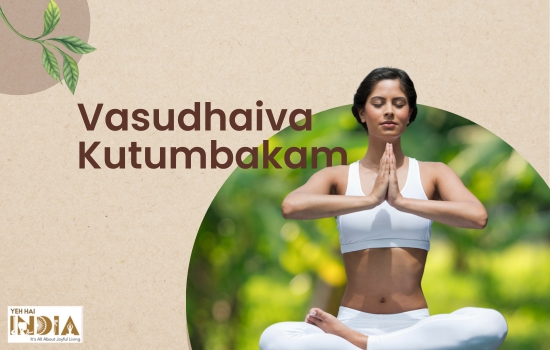Vedas are the ancient guide to life which recorded the traditions of ancient India. The age old traditions are all about building harmony with nature, finding one’s true spirit and awakening the inner consciousness. In modern times, people have become conscious about many things like hygiene, finances, social relations,status, education, etc., but in the process of achieving everything, they seem to be losing something more important.
Life is not limited to the piles of files at the office, the pages of homework, the degrees or an impressive Instagram profile. Having a healthy body, mind and soul is the most important thing in life which cannot be replaced by any materialistic thing or bought with any amount of money. Regular practice of a spiritual lifestyle is the way to achieve those things.
Yogic knowledge can be applied today to create a society which is centred on the practice of Dharma and yogic lifestyle. Vedic knowledge system can be grouped into different branches. Some of the branches that are popular today include Vedanta, Vaastu, Ayurveda, Jyotish and Yoga. Each of these elements are concerned with different areas of knowledge and tradition that impact different areas of our life.
Recommended Story – Ayurveda-An Overview
The Vedas:
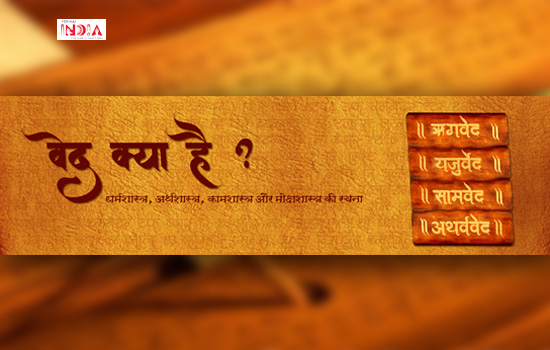
The ancient Indian scriptures are grouped into four main Vedas:
- Rig Veda: It is considered to be the oldest of the Vedas and contains poems about the Indian mythological stories, gods and goddesses.
- Sama Veda: It explains religious rituals, their rules and the reasons behind them.
- Yajur Veda: It contains instructions for those religious rituals.
- Atharva Veda: It consists of mantras against evils like enemies and diseases.
Each Veda consists of parts or divisions containing a specific type of text.
- Aranyakas: It contains the religious rituals and observations.
- Brahmanas: It contains the commentaries on those rituals, explaining the reason and philosophy behind them.
- Samhitas: This part contains all the mantras, hymns and prayers.
- Upanishads: All the philosophies are narrated in this part.
Vedic Knowledge:
The Vedas are considered to be a religious work by some scholars. However, there is a lot of focus on developing a conscious lifestyle, morals and spirituality in these scriptures. The word “Veda” means knowledge. By knowledge, we don’t mean just any information but it is the supreme knowledge found after practice of constant meditation and inner spirituality. It is the knowledge that takes us to a higher form of consciousness within ourselves.
This knowledge was seeked by our most eminent rishis and saints thousands of years ago. They decoded the message of the universe through its unique energies. This knowledge is applied to the different disciplines within the Veda. Many people from all over the world have come to India, seeking this knowledge. The Vedas have inspired philosophies, arts and sciences in the ancient age. The intelligence possessed by our rishis, from the vedic period, is not comparable to any other type of intelligence found today. It is an intelligence which was guided by the universe itself and can be called the cosmic intelligence.
Types of Vedic Knowledge:
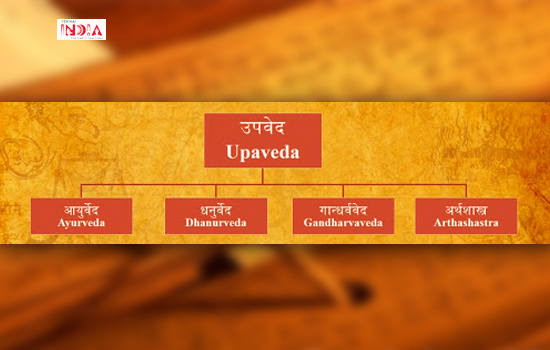
The vedic knowledge can be divided into four different types:
Ayurveda: The knowledge of medicine.
Gandharva veda: The knowledge and art of music and dance.
Dhanurveda: The rules and knowledge of warfare.
Shilpa veda: The fundamentals of art and architecture.
Vedic Knowledge In Modern Life
1. Science and Philosophy:
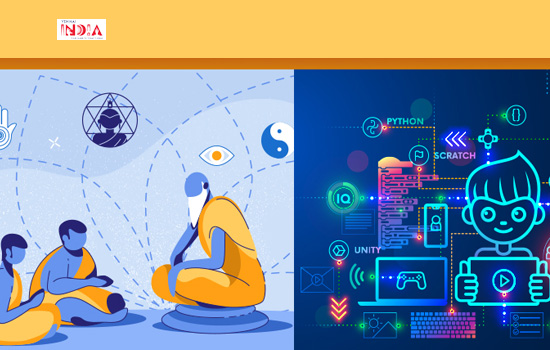
The modern age has witnessed tremendously rapid growth of technology in different disciplines of modern life. However, certain questions remain unanswered. Not even the most famous and intelligent person can answer those questions. When we see this vast world around us with all these beautiful creatures each with its own distinctive traits, it makes us wonder where do all these come from? It’s a question that many scientists have failed to give a satisfactory answer to.
They do have their own theory, according to which, all matter came into existence about 13.8 billion years ago from a “gravitational singularity”. This theory is known as the “Big Bang” theory in popular culture. So many other questions come to mind when we read about this theory: can this gigantic amount of matter pop into existence from nothing? That’s what the Big Bang theory states.
This theory is partly in sync with the explanation given in Vedas about the beginning of the universe, according to which the cause was a spiritual energy that created itself. There was no state of existence or non-existence and such a state was possible only when there was no time. The theory discovered in the 20th century was already mentioned in the 5000 years old scriptures.
There are many other questions, the answers to which our souls intimately seek: What is our soul made of? What is our purpose on earth? Why do things happen the way they do? The questions are endless. It would be exhausting for any normal human being to come up with adequately satisfying answers to these never ending queries of the mind. The answers to all these deeper questions are embedded within our most ancient resources of knowledge.
The practice and knowledge of science flourished in the vedic period during which several areas like astronomy, astrology and arithmetic witnessed significant development. In fact, most of the ancient development of science can be credited to the intellectuals of the Vedic period.
Recommended Story – Ayurveda and Its Rising Popularity Around the World
2. Health and Medicine:
Ayurveda forms the basis of medical practice in India. In fact, some of the first surgeries were performed by the Ayurvedic doctors in ancient India. Today, Ayurveda is one of the most popular alternative medicinal practices in India which specialises in preventive medicine. The focus of Ayurveda is more on preventing the cause rather than treating a disease. This approach is immensely suitable for the millions of people who you are at risk for developing lifestyle diseases which are indeed preventable.
Another important contribution of Vedas in health and medicine is Yoga, which was derived from the Rig Veda. Yoga has proved its benefit time and again, during all the research conducted. It is observed that regular practice of yoga is great for maintaining a good weight and physical fitness which helps in lowering the risk for many diseases like diabetes, cholesterol and blood pressure. It also helps to improve mental health. No wonder yoga is popular all over the world today.
3. Mental Health:
Spirituality is an important factor which differentiates humans from animals. We cannot understand our surroundings without understanding ourselves. Amidst the cacophony of our monotonous daily lives, we are forgetting these practices.
Materialism has failed to bring joy to even some of the richest men and women because at the end of the day these things are not permanent. If people fail to find something meaningful then it pushes them deep into a state of consternation. Without knowing one’s purpose, even the biggest achievements may seem futile to the soul.
Moral values are deteriorating and people don’t have any respect for each other. As people become more independent economically, they are growing distant socially. This kind of a society is the root cause of many mental health problems.
Vedic knowledge can be used to focus on psychological development through spiritual practices and good ethics for good mental health of the individuals as it helps them to keep focused and find motivation.
Infact, there are many scientific researches which show that meditation can be a great way to cope with the symptoms of mental illnesses. Many psychologists recommend it to their patients.
4. Art and Culture:
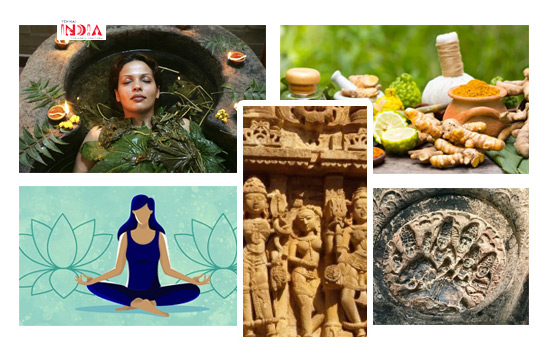
The Vedas have inspired many modern philosophers of India, even many freedom fighters, like Sudhakar Chaturvedi. Many arts, sculptures, dance forms and even architecture represents Vedas. It explains several important events in the Indian mythology which are the central themes in many Indian art forms. Vedas have definitely influenced many great thinkers and the popular culture.
A momentous blessing from the Vedic civilization is the Sanskrit language. It has been recognised worldwide as one of the most perfect languages and has given rise to a majority of the languages of modern India like Hindi, Bengali,Marathi, etc. In fact, Forbes Magazine claimed that Sanskrit would be the perfect fit for developing computer programs.
The Vedic period is one of the golden periods of Indian history where all fields of mankind flourished tremendously. The Vedas are the treasure chest of knowledge from this period which should not be ignored by the modern people. Solutions to some of our most challenging problems can be hidden in these books. The practice of yogic life can always be beneficial to every individual no matter what gender or age they belong to. The heritage of knowledge should be encouraged and preserved by all of us.
Recommended Story – Spiritual Gurus Of India And Their Teachings









